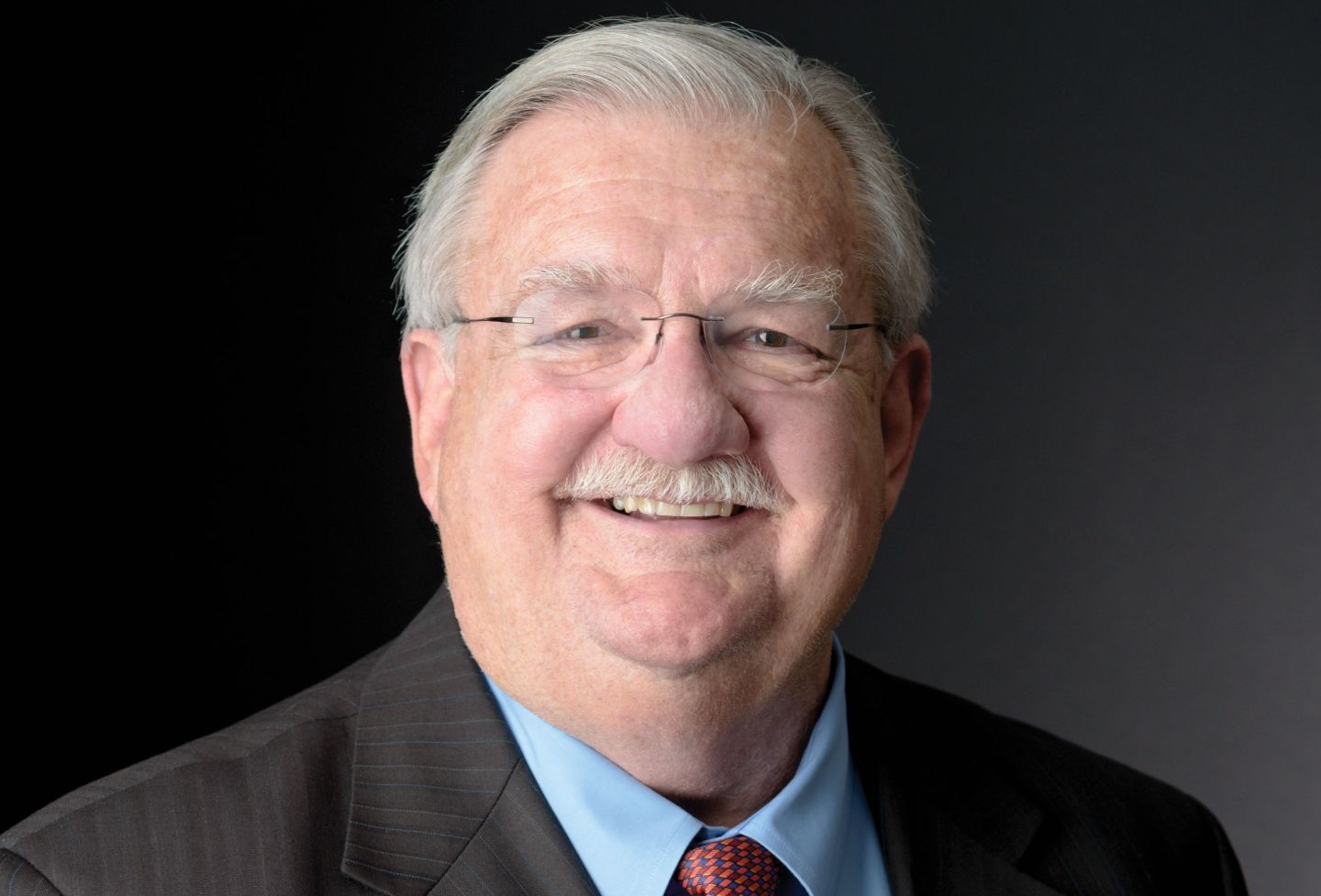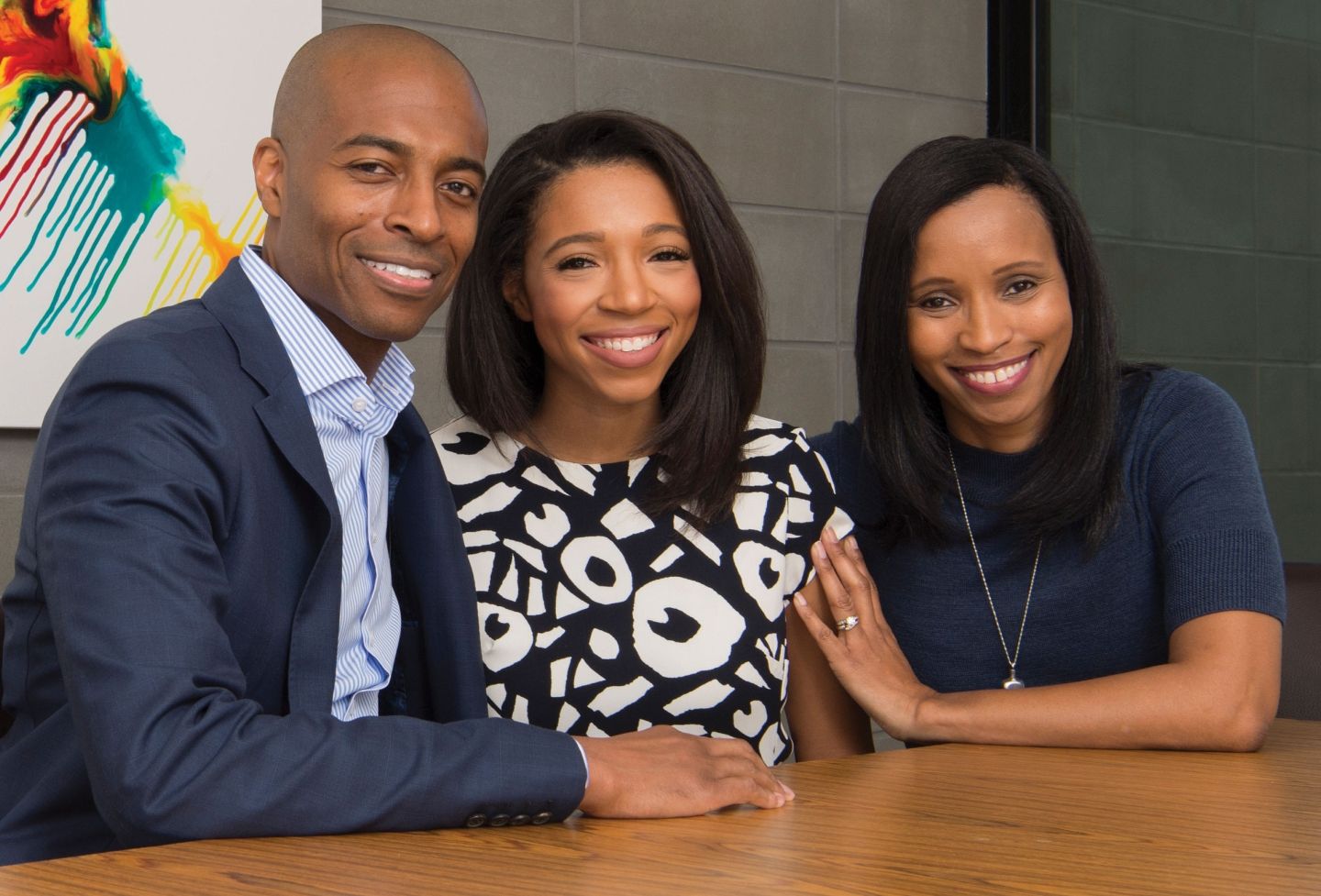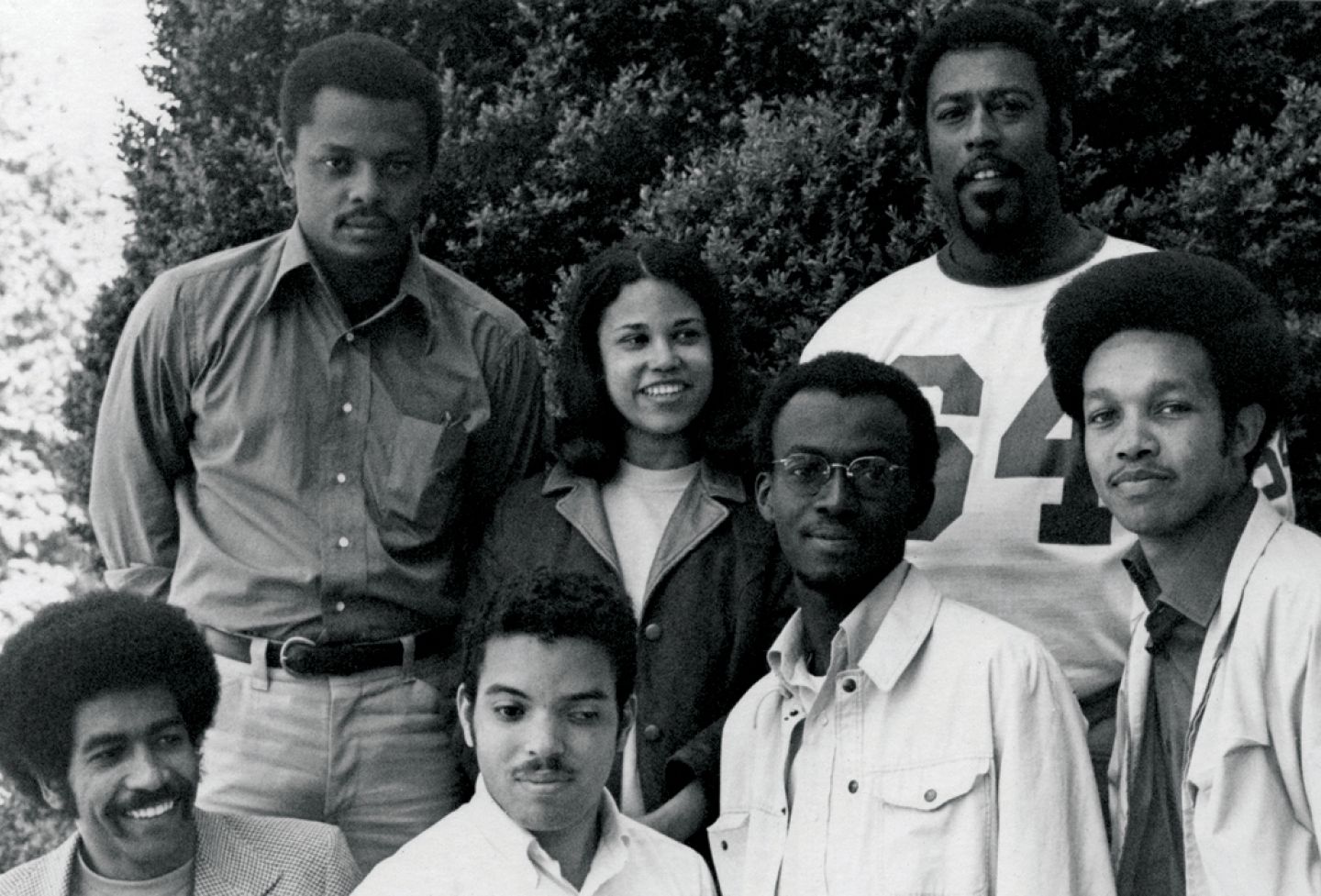Like many 20-somethings, Robert F. “Bobby” Kennedy ’51 didn’t know the exact direction his career should take. He knew he wanted a graduate degree. Law or business would work — but he cringed at the thought of it being business. “I think the idea of me at business school has more comical than serious aspects,” he commented in a letter to his sister Patricia.
He had written her in reaction to UVA’s blunt assessment of his academic performance at Harvard College, from which he would graduate with a bachelor’s degree in political science. He was told he needed to up his game and perform well on his law school aptitude test if he hoped to attend Virginia.
In 1948, the Law School indeed welcomed the son of influential businessman and public servant Joseph P. Kennedy Sr. as a member of the first-year class.
What the University gained wasn’t just a member of a family with growing political reach, but a young man growing into a person of substance. Kennedy had contributed to his brother John F. Kennedy’s successful campaign efforts for the House of Representatives, and had worked for a period as a stringer for the Boston Post in Europe and the Middle East. But perhaps his most noteworthy accomplishment before UVA was his perseverance as the smallest player on Harvard’s football squad. At 5-foot-9 and weighing about 165 pounds, Kennedy got knocked down frequently, but always got back up again to play.
Kennedy’s academic prowess didn’t improve much after admission, however. (His best classes were Constitutional Law and Labor Law.) There were distractions — although ones not entirely foreign to graduate students. He married his wife, Ethel, in 1950. He kept family and social commitments. Papers were sometimes turned in late.
He graduated from UVA Law in June 1951 — solidly in the middle of the class.
Before he did, though, Bobby Kennedy was able to distinguish himself. As a budding legal advocate, Kennedy’s arguments in his third year as president of the Student Legal Forum helped convince UVA’s leadership to desegregate a major speaking event.

<p>Kennedy and U.S. Supreme Court Justice William O. Douglas, center, with members of the Student Legal Forum, including Endicott P. "Cottie" Davison '51, first from left. <em>Photo</em> c<em>ourtesy UVA Law Library</em></p>
The result quietly upended Virginia law of the time and forecast Kennedy as the fighter for social justice that he would become.
BECAUSE OF HIS CONNECTIONS, Kennedy was a shoo-in to lead the Student Legal Forum. He was elected in 1950 to serve the 1950-51 school year.
A venerated organization at the Law School, the forum invites speakers to comment on topics of the day. High-profile politicians, judges, actors, writers and activists have all delivered remarks at the group’s request. The forum celebrated its 70th anniversary last year, and for all but a brief period in the 1990s and during World War II, has operated continuously.
By any measure, the 1951 speaking roster was impressive.
In addition to Kennedy’s father, who had served as the nation’s first chairman of the Securities and Exchange Commission and the U.S. ambassador to the United Kingdom, and Kennedy’s brother John, the future president, other speakers would include: Supreme Court Justice William O. Douglas, Sen. Joseph R. McCarthy, RCA President Frank Folsom, former Assistant Attorney General Thurman Arnold, New York Times journalist Arthur Krock — and one other.
<p>“Hey, why not Ralph Bunche?” Kennedy said to classmate Endicott P. “Cottie” Davison ’51.<br />
<br />
This was in the spring of 1950 as they discussed potential speakers. Davison recalled his time on the forum in interviews with biographers, including in the book “Bobby Kennedy: The Making of a Folk Hero,” by Lester David and Irene David.<br />
<br />
Bunche was a well-known public figure. As a mediator for the United Nations, he had successfully negotiated 1948 peace talks between Arabs and Jews in Palestine, subsequently winning the Nobel Peace Prize for his work. He was the first African-American to win the award.</p>
And he had just accepted a professorship in political science at Harvard — the program the young Kennedy had completed. (Bunche, however, would later decline the position, opting to stay on with the U.N.)
Kennedy extended the invitation as a new, more progressive atmosphere at the University was taking hold. That year the Law School accepted its first black student, Gregory Swanson, who was UVA’s first black student as well.
But Bunche knew this was still the South. Life for whites and blacks remained largely separate and unequal.
He accepted — though he later added the caveat that his policy was never to speak to segregated audiences.
That meant Kennedy would have to scramble if he wished to avoid the embarrassment of rescinding the invitation.
WHEN THE ADMINISTRATION LEARNED that an openly desegregated, high-profile event for the public was in the works, Dean F. D. G. Ribble ’21 reportedly called Kennedy and Davison into his office.
Having Bunche speak was an indisputable honor. But Virginia, Ribble pointed out, had a law on the books that stated “…public assemblage which is attended by both white and colored persons, shall separate the white race and the colored race…”
Even so, the dean said he would back the plan if they could get the Student Advisory Council and the Board of Visitors to sign on, according to Davison.
UVA Law Professor Gordon Hylton ’77, an expert on the Law School’s history, said if Ribble did insist that Kennedy build consensus among community stakeholders, it may have been for practical reasons. Any signs of unrest on Grounds would reverberate in the media, potentially affecting UVA’s funding from Richmond. Enrollment, boosted by the G.I. Bill after World War II, had since declined by 25 percent.
“Nobody at UVA is really opposed to Bunche speaking; he’s famous,” Hylton said. “They’re just concerned it be handled in a way that minimizes the adverse consequences for a university that’s in the midst of a financial crisis.”
Regardless of the reasons why, Kennedy was annoyed he had to jump through hoops to host such an accomplished speaker, according to classmates. He nevertheless went straight to work. He started with the Student Advisory Council.
“So we went to the student council and they all thought it was a great idea until it came [time] to sign a resolution saying so,” Davison recalled. “Then many balked. They were for the most part [S]outherners, some of whom were interested in political careers, and they didn’t want their names tainted with the possibility that they had cooperated with bringing a black to the University of Virginia.”
Others noted that even going home might have been a problem for them, if word got around.
“[T]he Southern boys began to say, ‘I’ve got to go home to Alabama later — I can’t sign it.’”
Their responses infuriated Kennedy.
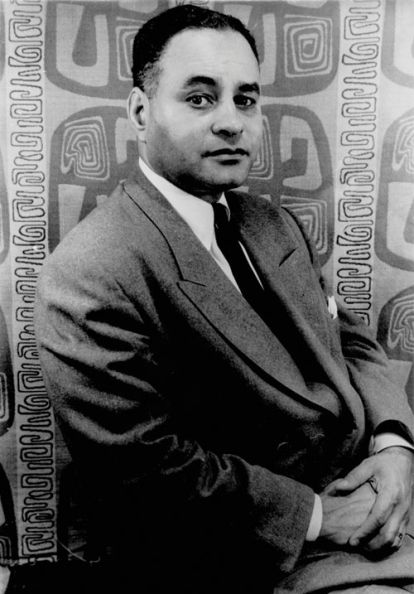
American political scientist and diplomat Ralph Bunche in 1951.
“Bobby was livid,” Davison said. “‘You’re all gutless,’ he bellowed at the student leaders. ‘You’re willing to go ahead with the idea, but you’re afraid to let anyone know you’re backing it!”
WHAT KENNEDY ULTIMATELY GOT from the student council was a compromise.
The council apparently provided a statement that said the Bunche invitation had “the overwhelming support of the student body.” Kennedy used those words in his March 8, 1951, letter to President Colgate W. Darden on behalf of the forum (a document now housed in the Albert and Shirley Small Special Collections Library at UVA). But the “attached” resolution Kennedy references, it seems, is lost to time.
Regardless of how the council may or may not have gone on record, the student leaders, Davison would later report, promised not to oppose the event — which may have been just as good in the dean’s eyes.
In writing his letter, Kennedy knew that it would be fodder for Darden and the Board of Visitors to discuss.
The Bunche lecture had been scheduled for the same month. His missive had to be clear and persuasive.
The letter was deferential, yet forceful.
“At the outset permit us to say that at no time did we consider the invitation one calculated to embarrass the University of Virginia,” Kennedy writes.
He goes on to list Bunche’s obvious credentials and prestige, which he says are “hardly necessary to recall,” before mentioning two other recent forum speakers. The first is a “former Ambassador to the Court of St. James”—a not-so-veiled reference to his powerful father. The other is “a Supreme Court Justice,” meaning William O. Douglas; referencing the justice is perhaps a subtle way of invoking the law of the land.
Then Kennedy returns to the idea of embarrassment:
“Ever since its inception the lectures sponsored by the Student Legal Forum, while primarily designed for law students, have been open to the public at large. At no time did it occur to us that it would be possible or desirable to have Dr. Bunche lecture under any other arrangement. Indeed it did not appear to us then, and it does not appear to us now, that there is any problem calculated to embarrass the University, unless the University should decide that it is necessary to create the issue itself by invoking an educational segregation policy which, as we shall attempt to point out later, is, in this instance, legally indefensible, morally wrong and fraught with consequences calculated to do great harm to the University. There is no question but that Dr. Bunche will feel compelled to cancel this engagement if an educational segregation policy is invoked.”
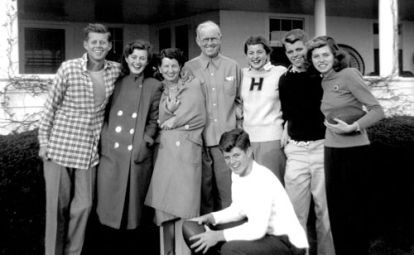
The Kennedy family in Hyannisport, Massachusetts, in 1948: John F. Kennedy, Jean Kennedy, Rose Kennedy, Joseph P. Kennedy Sr., Patricia Kennedy, Robert F. Kennedy ’51, Eunice Kennedy and Edward M. “Ted” Kennedy ’59, kneeling.
Kennedy also argues that attendance among blacks would likely be low because the talk fell close to Easter, and that Swanson, the black law student, had already set a precedent by mixing with whites at previous Law School events.
After a nod to “the delicate problems posed by the race issue,” he then launches into his legal arguments.
“It is axiomatic that the ‘law’ of Virginia is to be interpreted in the light of Supreme Court decisions and it ‘exists’ only insofar as it conforms to those decisions,” Kennedy states.
He interprets the 1950 Supreme Court case McLaurin v. Oklahoma State Regents as requiring equal protection for anyone attending a lecture in a state-sponsored educational setting.
“The only fair inference to be drawn from the celebrated McLaurin case is that where the University of Virginia offers a public lecture open to the citizens of the State, it cannot require that colored citizens in attending these addresses be seated in a segregated area.”
McLaurin rejected a state law requiring graduate students be educated in segregated fashion. (Kennedy attached a copy — with legal interpretation, for convenience.) In that case, University of Oklahoma student George W. McLaurin sued after being admitted to the school and not being permitted to interact fully with his fellow students. (McLaurin was educated from the hallway, and had his own designated seating areas in the cafeteria and library.) He won under the 14th Amendment.
Read More
- Bobby Kennedy: A Raging Spirit,” by Chris Matthews (2017)
- “Rated Progress: Robert F. Kennedy and the Desegregation of the 1951 Ralph J. Bunche Lecture,” by Andrew McCanse Wright, Savanah Law Review, Vol. 2., No. 1 (2015)
- “Bobby Kennedy: The Making of a Folk Hero,” by Lester David and Irene David (1986)
- “Robert Kennedy and His Times,” by Arthur M. Schlesinger, Jr. (1978)
The attached legal interpretation, likely prepared by Law School professors and with Darden’s previous awareness, according to UVA Law historians, also references the companion case, Sweatt v. Painter, which ruled that a state could not deny educational facilities to one race if granted to others.
Kennedy may have felt this argument was on shaky ground, however.
He goes on to advise that, while he didn’t think it necessary to do so legally, the University could alternately take the stance that Harvard had taken on similar controversial matters, “that the Student Legal Forum is simply a student group and what it does is primarily a matter for that group.”
Writing within the Cold War context, he closes by arguing that denying the mixed seating — in effect, to deny the speaker—would be un-American.
“At a time when the United States is battling daily a propaganda war with Russia, the racial issue would probably be spread across the headlines in its most damaging aspect,” he writes. “We believe the results would be catastrophic.”
In conclusion, Kennedy states, “a decision not to invoke segregation is more rational…”
KENNEDY PRESENTED BUNCHE as a speaker on the topic of “The United Nations and Prospects for Peace” on March 26, 1951.
It was reported that 1,500 people attended Bunche’s lecture that night, which would have meant audience members were elbow-to-elbow in Cabell Hall, a venue that today seats 851. By at least one estimate, a third of the audience was black.
“Every seat was filled, and many stood in the aisles and in the rear through the nearly two hours of his talk and the question period that followed,” according to an account in Norfolk’s Journal and Guide.
Newspapers largely ignored the controversial seating of the gathering, including in promoting the event, choosing to focus instead on the importance of the speaker and his message.
One reason was out of a sense of decorum, with an eye for safety.
“For the record, we were highly pleased to have [Bunche] here and were equally pleased because of the unsegregated audience,” stated an editorial in the April 10, 1951, edition of The Cavalier Daily. “We refrained from commenting on the segregation angle because emotions might become aroused unnecessarily.”
It added, “The University community attended Dr. Bunche’s speech to hear him speak. The fact that he is a Negro or that Negroes were in the audience on a non-segregated basis caused no ado whatever.”
In a speech noted for its pointed denunciation of isolationism, Bunche’s words were powerful, and called out a U.S. double standard at home versus abroad.
“America cannot have two brands of democracy, a pure or first-quality democracy for export and an imperfect factory-second quality for home consumption,” he said in his remarks, which commentators noted and parsed in the days following his speech.
The implication was that not everyone in the U.S. was equally franchised. Bunche added, “We cannot convert the masses of Asia and Africa to a democracy qualified by color.”
The speech was also notable for its opposition stance to the speech Joseph Kennedy made to the forum in the fall, which itself made headlines for its advocacy of the withdrawal of American resources from far-flung lands, including Korea.
Bunche, a peacemaker, nevertheless supported active engagement by the U.N. and others to spread democratic ideals and build world citizenship.
“If we hope to win this struggle, we must always think in terms of friends,” Bunche said. “I can’t think of a more desperate plight for a nation than to be alone.”
In closing his speech, he said, “gradualism” in racial equality was a losing approach because “no one was ever known to enjoy a right posthumously.”
RATHER THAN THE MESSAGE, it was perhaps simply the moment of peaceful assembly, in which large numbers of blacks and whites sat where they wanted to hear a prominent speaker, that is the lecture’s more enduring legacy.
That is not to say that there were no race-related problems, though.
Ordinarily, visiting forum speakers would have been hosted for the night at the Farmington Country Club or the Old Ivy Inn, but Bunche was not allowed to stay at either because of his race. He suggested, by letter, that he would depart after the event.
In one telling, Bunche stayed with the Kennedys in the home they rented on Cameron Lane. Ethel Kennedy recalled the stay decades later: “They threw things at the house all night,” she is reported as saying in the 2017 biography “Bobby Kennedy: A Raging Spirit,” by Chris Matthews.
Kennedy, of course, would go on to become the storied attorney general of the United States 10 years later under his brother’s administration. He continued to serve into the subsequent Lyndon B. Johnson administration after his brother was assassinated. During those four years, Kennedy was an outspoken advocate for civil rights who underscored his efforts with the teeth of the law. That included the desegregation of Virginia’s defiant Prince Edward County public schools. He collaborated on the Civil Rights Act of 1964, which helped bring an end to lingering Jim Crow laws.
He was assassinated June 6, 1968, during a run for the presidency.
In 2011, sitting Attorney General Eric Holder, the first African- American to hold the position, evoked Kennedy’s legacy in a speech to UVA Law’s graduating class.
“Now, [Kennedy] easily could have avoided controversy, and politely explained to Dr. Bunche that such a thing would be impossible—that it was well beyond his power or control—and that, regrettably, the invitation would have to be withdrawn,” Holder said. “He could have bent to custom—and to state law—and moved on to the next distinguished name on his list of potential speakers.”
Holder noted that Kennedy also could have cheated the system (as had been done on occasion for events, in lesser numbers and without the level of scrutiny) “by declaring that a section for the audience would be for African-Americans only, but then allowing people to sit wherever they liked.”
He did not take any of those easy routes, however.
“When, at long last, Dr. Bunche arrived at Cabell Hall, it was filled to capacity,” Holder said. “And, for the first time in history, nearly a third of the seats were taken by African-Americans. Sixty years later, I believe that Robert Kennedy would be proud to see this diverse and extremely talented group of graduates.”

